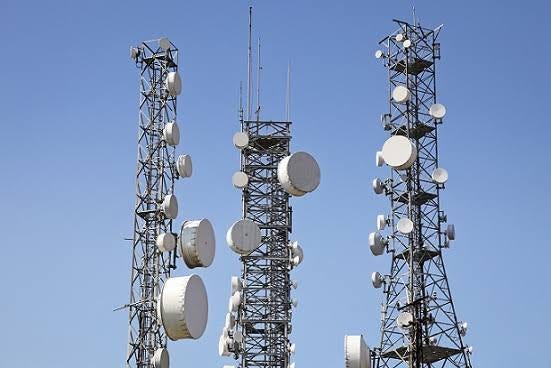The House of Representatives has frowned at the request by the Nigerian Communication Commision (NCC) for N700 billion to provide telecommunication network coverage to 27 million Nigerians who lack access to the service.
The House also queried the Commission over 1014 projects under the Universal Service Provision Fund (USPF) including an e-library project that was carried out to the tune of over N2 billion.
The House ad-hoc committee investigating the failure and inability of NCC to promote widespread availability mobile telecommunication network service throughout Nigeria as well as accruals and utilization of funds in the USFP made stated these at its inaugural hearing on Monday.
The executive vice chairman of NCC, Umar Danbatta appeared before the committee alongside officials of the commission and representatives of telecommunication companies.
The committee headed by Bamidele Salam (PDP, Osun) pointed out that there was no specific description of what was done in the contracts, saying 80 percent of the projects had no specific location.
It therefore moved a motion that the NCC should provide the specific addresses and project description and specifications for each of the contracts that were awarded and listed in the 91-page document it submitted on Tuesday.
The committee noted that most of the contractors also had no addresses specified on the document and queried the commission for unilaterally deciding how much money goes to the USPF.
Salam said, “There is a list of contracts awarded by the USPF since inception provided for us here, which is about 1014 various contracts on which a few observations have been made. There is also the submission of the annual audited report of the USPF which has been from 2007 till date, but a few years missing from the audited reports. A few observations have been raised out of that and I want members to let us address those issues so they can take the answers holistically.”
The committee also invited the minister of communications and digital economy, the Accountant General of the Federation, the Auditor General as well Chief Executive Officers of telecommunication companies over the issue.
They were summoned to appear before the committee alongside the NCC on Wednesday when the hearing would resume.
Responding to questions from lawmakers, Danbatta said the USPF regulations stipulated that the commission would determine the contributions from time to time.
Danbatta earlier said in 2013 there was a consultancy driven by the NCC to identify clusters of access gaps in the country.
He said 207 clusters of access gaps according to that study and in these clusters of access gaps there were about 37 million Nigerians.
The executive vice chairman said since then through the Commission’s efforts the number of people without access had been reduced to 27 million.
He said: “What we have done to bring telecom services to people living in rural, unserved and underserved areas of this country, totalling 37 million people courtesy of the consultancy that was conducted in 2013.
“By 2019 we had succeeded in reducing the clusters of access gaps to a 114 through the deployment of the necessary infrastructure needed to bring services to people living in rural, unserved and underserved areas of the country. This deployment of infrastructure are the base transceiver stations.
“I am going to give information about the base transceiver stations we have so far. This resulted in the reduction of Nigerians in those clusters from 37 million to 31 million in 2019. By 2022 we had reduced the clusters of access gaps to 97 from 207 in 2013.
“The number of Nigerians again have come down from 37 million in 2013 to 27 million as we speak. How did we achieve this? We achieved this by deploying from 2009 to 2011 a total of 79 base transceiver stations. In 2013 to 2018, we deployed an additional 124 base transceiver stations. From 2019 to 2022 we deployed a total of 364 base transceiver stations. The total number of base transceiver stations we have deployed to date is 567 as we speak. This is a landmark.
“But when you look at the gap. The 97 clusters of access gaps with a total population of 27 million Nigerians still without access as we speak. This is also not desirable. It is not something that we can allow to continue. That is why in our presentation we have indicated additional things we have done to be able to bridge these gaps. And giving an analysis of the amount of money that would be required to completely bridge the 97 clusters of access gaps in the country.
“Arising from the deterioration of the exchange rate of the naira to the dollar, we have a figure of approximately N700 billion. It is the total amount required to completely bridge the gaps within the clusters that I have stated earlier. This is not a tall order. It can be done.
He said one way to ensure adequate coverage was to declare a state of emergency that would lead to the bridging of all these clusters of access gaps in the country.
